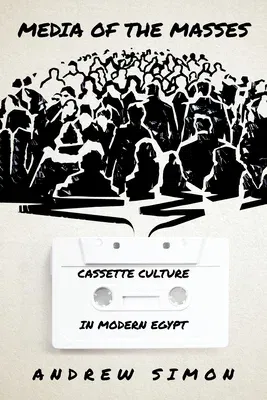Andrew Simon
(Author)Media of the Masses: Cassette Culture in Modern EgyptPaperback, 19 April 2022

Qty
1
Turbo
Ships in 2 - 3 days
In Stock
Free Delivery
Cash on Delivery
15 Days
Free Returns
Secure Checkout

Part of Series
Stanford Studies in Middle Eastern and Islamic Societies and
Print Length
304 pages
Language
English
Publisher
Stanford University Press
Date Published
19 Apr 2022
ISBN-10
1503631443
ISBN-13
9781503631441
Description
Product Details
Author:
Book Format:
Paperback
Country of Origin:
US
Date Published:
19 April 2022
Dimensions:
14.99 x
22.61 x
2.03 cm
ISBN-10:
1503631443
ISBN-13:
9781503631441
Language:
English
Pages:
304
Publisher:
Weight:
430.91 gm